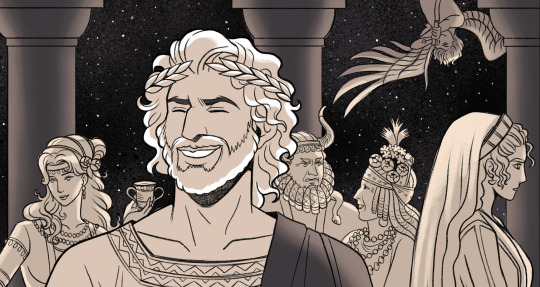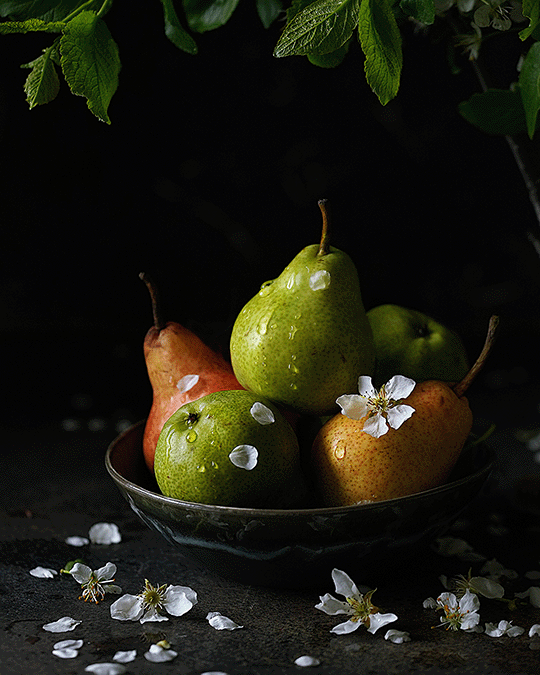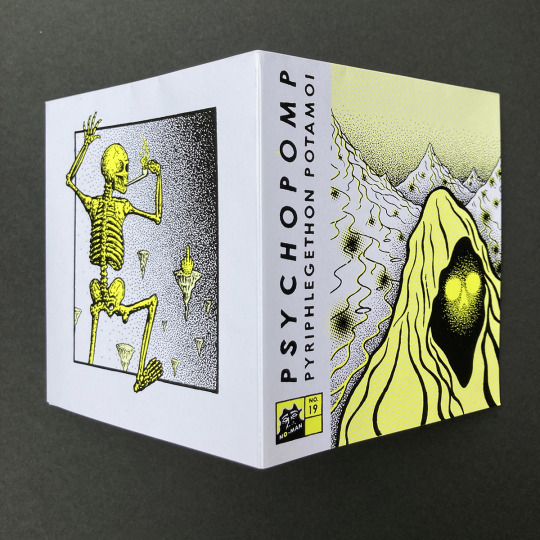#Potamoi
Text
There is a quality pertaining to water in motion which suggests life. The myths of
ancient Greece show how responsive the people of those days were to the vitality and numinous character of their rivers, or in other words to the mysterious presence of a god which a river would emanate. Both major and lesser poets keep referring to them and bringing them into the landscapes of their most stirring imagery. What is there more suggestive of the numinous life of a river than the picture we are given of the Skamander in the Iliad, where the Troad scenery has become part of Greece.
Every spring even, whether gushing or trickling, was mysteriously live, for there was always a nymph presiding or embodying it,not a god but a female deity. As sons of Okeanos and Tethys, rivers were nearly always gods; springs were always female creatures. Their religio loci was feminine in contrast to the virile life of rivers.
-River Gods of Greece by Harry Brewster
100 notes
·
View notes
Text
Natural 'Love Remedies' in the landscapes of ancient greek myths. Part II: The River Selemnos
Thankfully this one is nice and short.
After the Charadrus you come to some ruins, not at all remarkable, of the city Argyra, to the spring Argyra, on the right of the high road, and to the river Selemnos going down to the sea. The local legend about Selemnos is that he was a handsome lad who used to feed his flocks here. Argyra, they say, was a sea nymph, who fell in love with Selemnos and used to come up out of the sea to visit him, sleeping by his side.
After no long while Selemnos no longer seemed so handsome, and the nymph would not visit him. So Selemnos, deserted by Argyra, died of love, and Aphrodite turned him into a river. This is what the people of Patrai say. As Selemnos continued to love Argyra even when he was turned into water, just as Alpheios in the legend continued to love Arethousa, Aphrodite bestowed on him a further gift, by blotting out the memory of Argyra.
I heard too another tale about the water, how that it is a useful remedy for both men and women when in love; if they wash in the river they forget their passion. If there is any truth in the story the water of the Selemnos is of more value to mankind than great wealth. (Paus. 7.23.1-3)
The last comment really gets me. Who hurt you Pausanias?
#greek mythology#greek myths#i'm going to bottle up that water and sell it for exorbitant prices#Aphrodite#Selemnos#Argyra#Potamoi
4 notes
·
View notes
Text
“In mainstream Greek myth, Okeanos is conceived of as a freshwater stream surrounding the whole of the earth, and the source of all streams and rivers as well as the sea. (Hes. Th. 337-70; Il. 21.1957, 18.607-8). The sun and the stars, the thirsty Bear excepted, rise and set in the bath of Okeanos (Il. 7.422, 8.485, 18.240; Od. 5.275, 19.434, 23.244, 347, etc.); the idea of the sun returning to the east in Okeanos' stream during the night is also early (Eumel. fr. 10 West, Mimn. fr. 12, Stesich. PMGF 185). Hesiod (Th. 133-6) makes Okeanos and Tethys ordinary Titans, children of Ouranos and Gaia. As mentioned above, however, an intriguing line in the Iliad (1+201 = 302) suggests an alternative theogony, according to which Okeanos and Tethys were the original parents; . . . The notion of the primeval 'waters comes to Greece ultimately from Mesopotamia. At the very beginning of the Babylonian epic Enūma Eliš, Apsu (fresh water) unites with Tiamat (the sea) to produce Anu (Sky) and Ea (Earth). The idea is found also in Genesis 1, where God separates the waters as the first step in creation, and in all versions of the creation story throughout the Near East and in Hesiod, 'the first separation [is] anthropomorphized as a quarrel . . . between either Sky and Earth, or the aquatic parents of Sky and Earth' (Janko, on Il. 14.200-7). "Tethys name could even be derived from that of Tiamat, and a Semitic derivation has also been suggested for Okeanos;" that Pherekydes of Syros calls him Ogenos also suggests that the name is a loan-word. We have seen that an Orphic theogony reflected in Plato's Timaios puts Okeanos and Tethys in their own generation after Ouranos and Ge, as parents of the Titans; and at Krat. 402b Plato quotes an Orphic couplet (fr. 15) in which Okeanos and Tethys were 'first to marry', a notion which must also reflect their status as alternatives to Ouranos and Ge. . . .
The children of Okeanos mentioned in our corpus are mostly daughters: Hesione, wife of Prometheus and mother of Deukalion (Akous. fr. 34); Europe and Thraike, daughters of Okeanos by Parthenope, and Asia and Libye, daughters by Pompholyge (Andron fr. 7); Styx (Epimen. fr. 7); Seirenes by Ge (Epimen. fr. 8, suppl.); Rhodos (Epimen. fr. 11); Ephyra wife of Epimetheus (Eumel. fr. 1); Perseis (Hek. fr. 35A); Daeira, sister of Styx (Pher. fr. 45); Philyra, mother of Cheiron (Pher. fr. 50); Peitho, wife of Argos (Pher. fr. 66); Aithra, wife of Atlas (Pher. fr. 9). Of sons, we hear of Triptolemos, son by Ge (Pher. fr. 53); possibly also the text of Apollodoros should be emended so that Asopos is a son of Okeanos in Akous. fr. 21. In Archaic poetry rivers are sons of Okeanos, springs are daughters. The names of the latter therefore often suggest qualities associated with water; however, because they are kourotrophoi (Th. 347), their names sometimes connote wealth, bounty, or desirable moral and intellectual qualities: e.g. Plouto, Tyche, Idyia, Metis, Melobosis, Peitho (if not rather an erotic association), Eurynome. Their generally benevolent and sympathetic nature is on display in the Prometheus Bound, whose chorus they form, and in vase painting where they are companions of Persephone at her unfortunate abduction.”
- Early Greek Mythography: Volume 2: Commentary, Robert Louis Fowler
3 notes
·
View notes
Note
Who are the gods behind Zeus in your Dialogues comic panel? I think I distinguish Hera and Aphrodite but I don't know the other two
You are right about Aphrodite, the one that looks like Hera... I made her look similar to her for ~reasons~ lol. (But perhaps I should have differentiated her a bit more) Regarding the man with the horns, I didn't have anything specific in mind, just that he was a river god of some sort, one of the Potamoi. The older woman is low-key a first pass at Rhea.

62 notes
·
View notes
Note
I recognize that this is probably a “chicken and the egg” question, but do you have any theories/head canon/actual knowledge of how the Ancient Greeks believed that nymphs were born?
I know that in the Percy Jackson series and later books the satyrs, dryads (and possibly naiads) can reincarnate…but how do they form initially?
Well, Nymphs is honestly a broad category of female deities, generally a more- minor class of deity. Small areas of influence and domain.
There's the Okeanides (daughters of Okeanos) who presided over fresh-water and the like. They include a large variety of nymphs, such as Naiades, Nephelai, Aurai, Dryades, Epimelides, and Leimonides. In modern day they're also considered ocean deities.
There's also the Hamadryades, which are typically connected to a very important tree in a grove, sometimes also Naiades of springs too.
There's also the Meliae (which classify as Oreiades and Melissai on top of Hamadryades and Naiads).
Plus the Anthousai, Hesperaies, Asteriai, Haliai, Nereides, Lampades, Mainades, and Nymphai.
Some of the fresh water nymphs are also further classified by Homer, such as Pegai, Krenai, and Potamoi, which became known collectively as Naiades.
Uh- got off point- the point is a large collection of them are simply born much like any other God. Some Nymphs are children of Titans like Atlas and Okeanos, others Gods like Nereus and Boreas, and some have an uncertain origin.
But they're born like any other.
#hauntedwizardtree#whoops went off a bit on the varieties- I don't talk about them much so it was fun to chatter#life answers#hellenic chat#helpol chat
20 notes
·
View notes
Note
How are Trite's family? Do they talk shit bout you?
They were very protective over their oldest sister. Especially the Potamoi (her brothers). Her mother, Tethys, still dislikes me. Perhaps she believes Amphitrite could do better, which is foolish since i am perfect. Her father, Oceanus, tolerates me. He approved of me and looks a lot like my wife in a lot of ways, he’s quite handsome.
-Poseidon

#record of ragnarok#ror#shuumatsu no valkyrie#snv#poseidon rp#ror poseidon#snv poseidon#amphitrite#record of ragnarok roleplay#record of ragnarok rp
6 notes
·
View notes
Text

Can you tell the difference game from mine version or LO/RS version
Note that I do not own the characters from the Greek Myth, I was doing this for fun.
My Metis
Metis is one of the Oceanids and the goddess of wisdom and she is Zeus’ first wife/queen, before he ate her, and mother of Athena. She is the daughter of Oceanus and Tethys, and sister of the Oceanids and Potamoi.
Likes: reading, sending time with her siblings in laws (Hestia, Hera, Demeter, Poseidon and Hades), playing with the fish, playing at the sea and sending some time with her sisters.
Dislikes: Zeus doing stupid stuff, war, being away from her sisters and sea snakes.
Friends/Allies: Hera, Demeter, Hades, Poseidon, Hestia, Zeus (sometimes) and the Oceanids.
Enemies: the Titans, Zeus (because he ate her) and Tartarus.
Personality: She is a very intelligent and kindhearted young goddess, who loves her family deeply and she always wants to see her daughter Anthea grow.
LO Metis
She is change from a Oceanid and goddess of Wisdom to a Titan goddess? of fertility (even know in the myth that she is not one of the Fertility gods, because RS can’t understand), instead of being the sister in law of Hera, Hestia and Demeter, nope she is the MOTHER of them (because incest is gross ewwww, even know it’s MYTHOLOGY) and she sleeps with her youngest daughter Hera’s man Zeus (Great Mom).

3 notes
·
View notes
Text
Royal Sword Academy Oc's

Chimlim Niran (Amourn @unidraky)
Eikon Model (Incremania @fumikomiyasaki)
Gracia Tiarana (Crystaleon @/fumikomiyasaki)
Orion Terranova (Mélancosmos @valse-a-mille-temps)

Nene Kanata (Hashikore @rookvonhunt)
Daffodil Blakely (Mysticana @/rookvonhunt)
Knickknack (Zodiaste @/rookvonhunt)
Nico and Chaton Tautou (Zodiaste)
Edward Potamoi (Zodiaste)
Lothaire O'Pry (Zodiaste)

Limnio Chthonic (Pantheitas @/vivaresmala)
Machi Kanazono (Illumina @vivaresmala)
Elliot Ripper (Finalium @terrovaniadorm)
Prometheus (Finalium @/terrovania)

Sanwaii
Maneki Whitefield
Utau Shimomura

Staff
Bella Rosethorne
4 notes
·
View notes
Text
Homer, Odyssey 10. 348 ff :
"They [the Nymphai (Nymphs)] come from springs (krênai) [i.e. Naiades], they come from groves (alsea) [Dryades], they come from the sacred rivers (potamoi) [Naiades] flowing seawards."
4 notes
·
View notes
Text

Hera Apia: Pears of the Argolid
A Proposed Modern Epithet 🍐
Inakhos lead the people from the mountains to the plains of the Argolid, where wild pears grew abundantly. His son, Phoroneus, then gathered the tribes of people together and formed the first city, named Phoronikon. Phoroneus' son, one of many, named Apis, was said to be a tyrannical king and named the land after himself as well.
This is a simplified version of the very complicated mortal and divine genealogy of Argos, but it sets the stage for the link between the Argolid and pears, apia.
The word apios was used by various authors to refer to the Peloponnese, as it means distant, far-away, or far-off land. Characters in Homer, Aeschylus, and Sophocles' works refer to their homes or other characters as apian. However apios also means pear-tree, specifically the cultivated pear of a settled peoples. Akhrades is the correct term for the wild pear that grew in the Argolid, the first appearance of pears in Greece.
In mythology, Phoroneus introduced the worship of Hera to the Argolid, and either his father Inakhos or Phoroneus himself declared that the land belonged to Hera, in a contest between the goddess and Poseidon. Poseidon, in his fury, drained all the rivers of the Argolid. Inakhos is often portrayed as a man and King in the genealogy of Argos, but also as a river-god of the eponymous river, and I have spoken before about Hera's connection with rivers and river-gods.
Plutarch is our only source for a festival in which Argive children playing call themselves ballakhradai, 'pear-throwers.' Plutarch questions whether the link is due to the arrival of Inakhos and the wild pears of the area, but also states the area was already named Apia, and so pears were named apioi after the region. The most ancient xoanon of a seated Hera belonged to Tiryns before it was transferred to the Heraion. This wooden statue was said to be made of pear wood.
Between the fertility inherent in rivers, and wild pears in the area keeping men nourished as they settled the plains belonging to Hera, the repeated connection with Hera shows her to be a goddess concerned with the survival and success of her people. That she is known to be in favour of Argos and the Argolid, a land known also for pears, and that people hailing from her region were known to be apian, show a possible strong link between the worship of Hera and apia.
🍐
Homer, Iliad 1.270; Aeschylus, Agamemnon 248; Sophocles, Oedipus at Colonus 1303
Pausanias 2.17.5
Plutarch, Greek Questions 51
Callimachean Istrus and the Land of the Pears
Sokrates of Argos
61 notes
·
View notes
Text
The Adeia - a new festival for Demeter
It's here, it's here, the Adeia is almost here!! In about 16 hours I'll be starting the festival of the Adeia as proposed by the ever lovely @thegrapeandthefig & @iliosflower . I've gone ahead and modified little bits, but the essence remains the same, which I will summarize as told by Aurora:
On a global scale, we’re dealing with a climate crisis that is putting food sources at risk. On a more local level, conflicts and abnormal weather are creating risks of bad harvests, resources shortages and/or inflations.
We are aware that not everyone is impacted directly by the current ongoing issues, but we hope that this festival (or at least the idea) can be useful beyond these and be seen through a wider scope of praying for food security at large.
We named the festival Adeia, from the ancient Greek ἄδεια, which conveniently can signify both “abundance”/”plenty” and “freedom from fear”/”security”. All things the festival aims for.
Who is being celebrated & invoked?
While both Demeter Soteira (the saviour) and Herakles Alexikakos (averter of evil) were originally mentioned, I will be holding this festival in honor of Demeter Soteira and Ares Karpodotes (giver of fruit) based on my praxis and personal relationships with the gods.
Offerings & Libations
I've decided to go a bit extravagant with my offerings for this as food is at the heart of this festival and if I learned anything from my Southern mom, it's that you always bring out the best food for your honored guests.
Appetizers: Figs drizzled with honey and a plate with goat cheese, apples, dolmas, and nuts
Main Course: Pork Ribs (honey & brown sugar), Pork Ribs (olive oil, butter, & herbs), potato Salad, grilled whole corn, and artisanal bread loaf (not for me as I have celiac, all for Demeter!)
Desert: GF honey cakes and oat milk ice cream
Drinks: Cucumber-lime lemonade, mint mojitos, honey and warm milk
Rough Outline of The Adeia
Go to farmers market to buy produce, baked bread, & flowers for Demeter Soteira & Ares Karpodotes
Stop at the river on the way home & give an offering to the Potamoi (the Columbia River is the lifeblood of our valley & provides us with the water we need to survive)
Come home, start preparing food & prepare outdoor area for feast & ritual later in the evening
Visit local nurseries and buy some native plants, to be dedicated to both Demeter and Ares; specifically anything that is beneficial for pollinators given the scope of the Adeia
buy canned goods & donate to local food bank in honor of Demeter Soteira & Ares Karpodotes
Finish preparing food offerings. Light bonfire & start ritual (basically normal worship with the offerings; include the Homeric Hymn to Demeter as well as my own written devotionals)
I think that's it! I'm really looking forward to this festival and I'll have to give an update on how it went. Again, so many thanks from the bottom of my heart to @thegrapeandthefigand @iliosflower for putting in the work to create a new festival for the HelPol community that blends our ancient faith with modern problems.
#adeia#adeiafestival#demeter#demeter deity#ares#ares deity#demeter soteira#ares karpodotes#hellenic festivals#hellenic festival#hellenic polytheism#hellenic deities#hellenic worship#hellenic paganism#helpol#theoi
50 notes
·
View notes
Note
I think that the reason why Pericles' mistakes mostly go unmentioned and he is remembered fondly, whereas Alcibiades has the reputation of "a traitor" is because of the notion of "history is written by the winners": Pericles may have been hugely responsible for the Peloponnesian War (which resulted in the defeat of Athens), but because he died 25 years before it ended (and because his political career extends to much more than the declaration of a war), he earned a good reputation throughout the years. Alcibiades, on the other hand, was most active during the PW and couldn't stop, no matter how much he tried, all these exiles and accusations against him, the generals didn't listen to him in Aegous potamoi, which didn't turn good for them. And because he is not a "winner", there's no justifications for his actions.
Yeaahh you're right. Also Pericles is responsible for the acropolis i guess.
10 notes
·
View notes
Note
Any tips for practicing while in the hospital?
Well a lot of how I practice now can probably transfer to in-patient or ER. I've also been in both situations so I'll share.
Here is my low spoon & zero spoon post that might help.
What I do now that I think can transfer:
Say deities names when I do some action; either out loud or in my mind. So if you get administered medication by a nurse you could say the names of health Gods in your mind. Hellenic: Apollo Paian, Asklepios, Asklepiades. Sumerian: Ninisina, Gula, Damu. If you drink a liquid or when you are administered saline. Hellenic: Okeanos, The Potamoi Sumerian: Enki. You can pick your own things you'll attach to saying a deity name.
If you watch TV (if there is a TV in the room or if you have your laptop) dedicate what your watching to a God(s). Watch the show "with them."
Do things with the gods in mind. If I'm using duolingo I think of and ask for help from Nabû. If I'm reading I think of and ask for help Geštug Nisaba.
The water offerings at sink as described in the post I linked above. If you can go to the bathroom on your own or take a shower on your own.
Things I've actually done when in the hospital:
Have my prayer beads with me even if I wasn't using them. This is what I do in ER.
Wear devotional jewelry if I can. Also what I do in ER. My medical bracelet counts here.
Draw symbols of my deities on a piece of paper with markers that they had provided to me while in-paitent. So I drew a flame for Hestia as one example. This was not intricate, it was about the quality of a 4th grader drawing during indoor recess.
I had a small travel altar for my dorm room. I brought that with me for in-paitent and set it up in a small place that was out of the way in the room.
39 notes
·
View notes
Text
Vocab post: Cthonic
The word cthonic comes from the word “kthon” meaning earth or soil. Cthonic is a descriptive word for things relating to the underworld and is used mainly in context of Cthonic deities, cthonic rituals, cthonic cults, etc. It is often used as the antithesis of Ouranic but that is not entirely true.
Cthonic and Ouranic are not two sides of the same coins and do not cleanly differentiate types of deities and forms of worship but instead demonstrate a cultic spectrum. Cthonic not only refers to the underworld but that related to the earth and agriculture, deities such as: Persephone, Demeter, Hermes and even Zeus has got cthonic epithets.
Cthonic cult differs majorly from Ouranic cults from their sacrifices, rituals and prayer format. Cthonic sacrifices was defined as black or dark-skinned animals, and worshippers didn’t consume their sacrifices but instead offered in whole and burnt it and destroyed the offering. Sacrifices were performed in a pit in the ground or on a low altar in the direction to which cthonic deities reside. Incense was not used in cthonic worship due to the smoke rising to the sky rather than sticking to the ground. Honey was also preferable to wine in cthonic worship.
Historians argue as to if cthonic is a historically accurate term with some historians, like van Straten, arguing that there is no historical evidence for the term cthonic. Others say that the term is no longer useful as modern definitions have strayed from historical definitions.
Written by @sapphicsarrisae
Vocab list
Afterlife
Agos
Amplakia
Asebeia
Attic
Chthonic
Cosmogony
Cosmology
Cult
Daemons
Dreams
Dyssebeia
Einalic, Oceanic
Enages
Epithets
Eudaimonia
Euphemia
Eusebeia
Festivals
Funerals and Mourning
Gates
Gnosis
Hagneia
Hagnos
Hamartia
Hearth
Hero
Hesiodic
Hierai Bibloi
Hieroi Logoi
Hieros Homeric
Hosios
Hubris
Hyperborea
Katharmos
Katharos
Kharis
Libation
Life Cycle Rituals
Lyma
Lyssa
Magic
Mantikē,
Manteis
Miaino
Miaros
Miasma
Moria
Mysaros
Mysos
Mystery Cults
Mythology
Nesoi
Nympholepsy, Nympholepts
Nymphs
Oaths
Olympus
Oracles
Orphic
Ouranic
Ourea
Palace
Panhellenism
Phasma
Phren,Phrenes
Potamoi
Prayer
Priests
Protection
Protogenoi
Reconstructionsim
Regionality
Restless Dead
Revivalism
Ritual
Rustic
Sacred Sacrifice and offerings sanctuaries,
Sophrosyne
SPG
Supplicants
Temples
Theoi
Titans
Underworld
UPG
Vows
VPG
Working
Worship
Xenia
#hellenism#cthonic#hades deity#persephone deity#ancient greek religion#ancient history#greek cults#hellenic polytheism
27 notes
·
View notes
Note
In your fic Oceanus participated in the Titanomachy? In the myths and PJO he didn't and he willingly gave up the seas to Poseidon, right? At least in the first one. So what happened to his and Tethys kids? The oceanids nymphs and potamoi? Poseidon let them live even if their father fought against him?
it'll be touched upon in a later chapter, but basically, he killed off the annoying ones and spared the ones who weren't annoying 💀
6 notes
·
View notes
Photo


NO-Man Press No.19 - ‘Psychopomp Pyriphlegethon Potamoi’
mini-book-foldout. screenprint / photocopy
https://rodgerbinyone.bigcartel.com/
10 notes
·
View notes